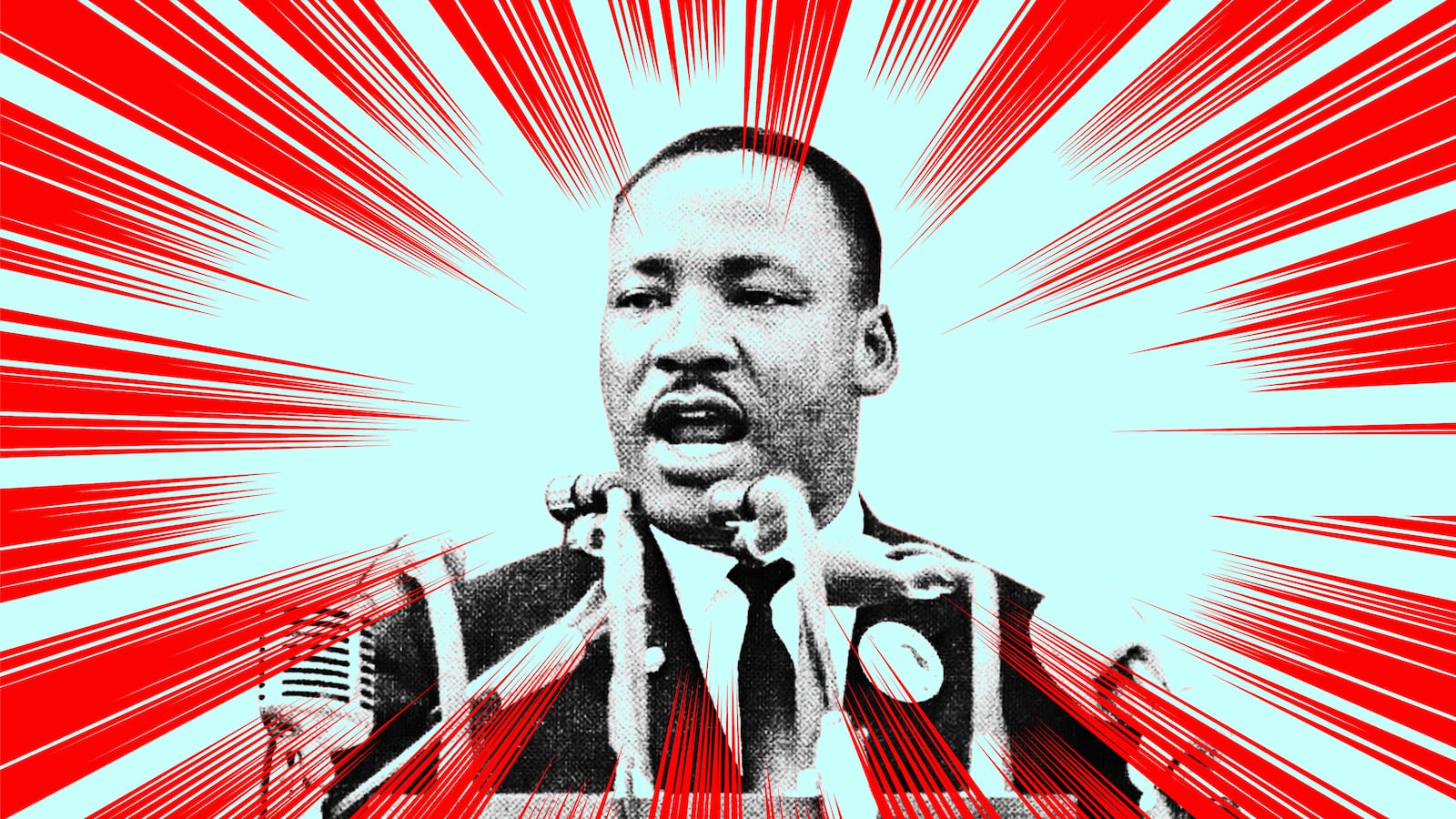No single piece of writing that Martin Luther King Jr. published in the ’60s had more of an impact than his 1963 “Letter from Birmingham Jail,” but this year, as we mark the holiday celebrating King’s birthday, the moment is right for a second look at that letter: this time for what it says about the issue that beyond any other continues to divide progressives—identity politics.
King without his “Letter from Birmingham Jail” is Lincoln without the Gettysburg Address, but when it was completed in April 1963, the letter met a cool reception. The historians Taylor Branch, Diane McWhorter, and Timothy Noah have all shown how “Letter from Birmingham Jail” received no widespread national circulation until The Atlantic published it months later in its August 1963 issue under the cringe-worthy title, “The Negro Is Your Brother.”
The genesis of King’s letter was his April 12 arrest, along with civil rights leaders Ralph Abernathy and Fred Shuttlesworth, for leading a Good Friday protest in Birmingham, Alabama, as part of a campaign to bring national attention to Birmingham’s segregationist policies and brutal policing of its African-American community. While King was in jail, a friend smuggled him a copy of the Birmingham News, which featured an open letter by eight Alabama Christian and Jewish clergymen criticizing King for his role in the demonstrations.
King’s response to the open letter was a letter of his own addressed to “My Dear Fellow Clergymen.” In his letter, which he composed in his cell before being released from jail on April 20, King never accused the clergy attacking him of being insincere or racist. Instead, he linked them to the kind of white moderate who, in King’s judgment, was “more devoted to ‘order’ than to justice.” From his position of comfort, King declared, the white moderate “paternalistically believes he can set the timetable for another man’s freedom.”
“Perhaps it is easy for those who have never felt the stinging darts of segregation to say, ‘Wait,’” King observed. Here in a single sentence was the crux of his argument, and had he ended his letter at this point, King’s defense of what we now call identity politics would have been formidable. But King was not through. The positive side of his argument for protesting in Birmingham was more important than the negative side.
King now used his own experience, as well as that of other Southern blacks, to talk about how their suffering in a segregated society had taught them to respond to others’ victimization. Taking as his example Hitler’s Germany, King wrote, “I am sure that had I lived in Germany at the time, I would have aided and comforted my Jewish brothers.”
King was citing, without specifically referring to it, the example of the German Lutheran pastor Dietrich Bonhoeffer, who was killed by the Nazis for aiding Jews, but the larger point King was making to friend and foe alike was that his African-American identity had increased his capacity for empathy with victims everywhere. In King’s mind, identity politics, rightly understood, was liberating rather than isolating.
King had no trouble practicing what he preached. Four years later in the 1967 address, “Beyond Vietnam—A Time to Break the Silence,” that he delivered at Riverside Church in New York City, King expanded his “Letter from Birmingham Jail” to explain why he felt it necessary to oppose the Vietnam War. “I believe that the path from Dexter Avenue Baptist Church—the church in Montgomery, Alabama, where I began my pastorate—leads clearly to this sanctuary tonight,” King told his Riverside Church listeners. He could not, King insisted, be a credible civil rights leader if it meant his goals were limited to gaining “rights for black people.”
In 1968, the year of his assassination, King continued to be guided by the same thinking. He assured Cesar Chavez, then trying to unionize struggling California agricultural workers, of his support, telling Chavez, “We are together with you,” and in the final campaign of his life, King joined striking sanitation workers in Memphis, Tennessee, in their fight for better wages and improved working conditions.
Today, if King were alive, there is every reason to believe he would still view identity politics, rightly practiced, as the politics of hope. In the face of President Donald Trump’s family separation policy for immigrants seeking entry into the United States, King would certainly have lent his weight to protests along the border with Mexico. As for any church in which King was minister, there can be little doubt that it would be a sanctuary church.





